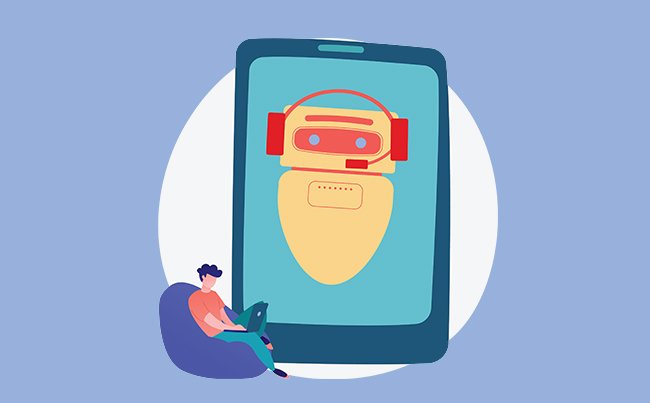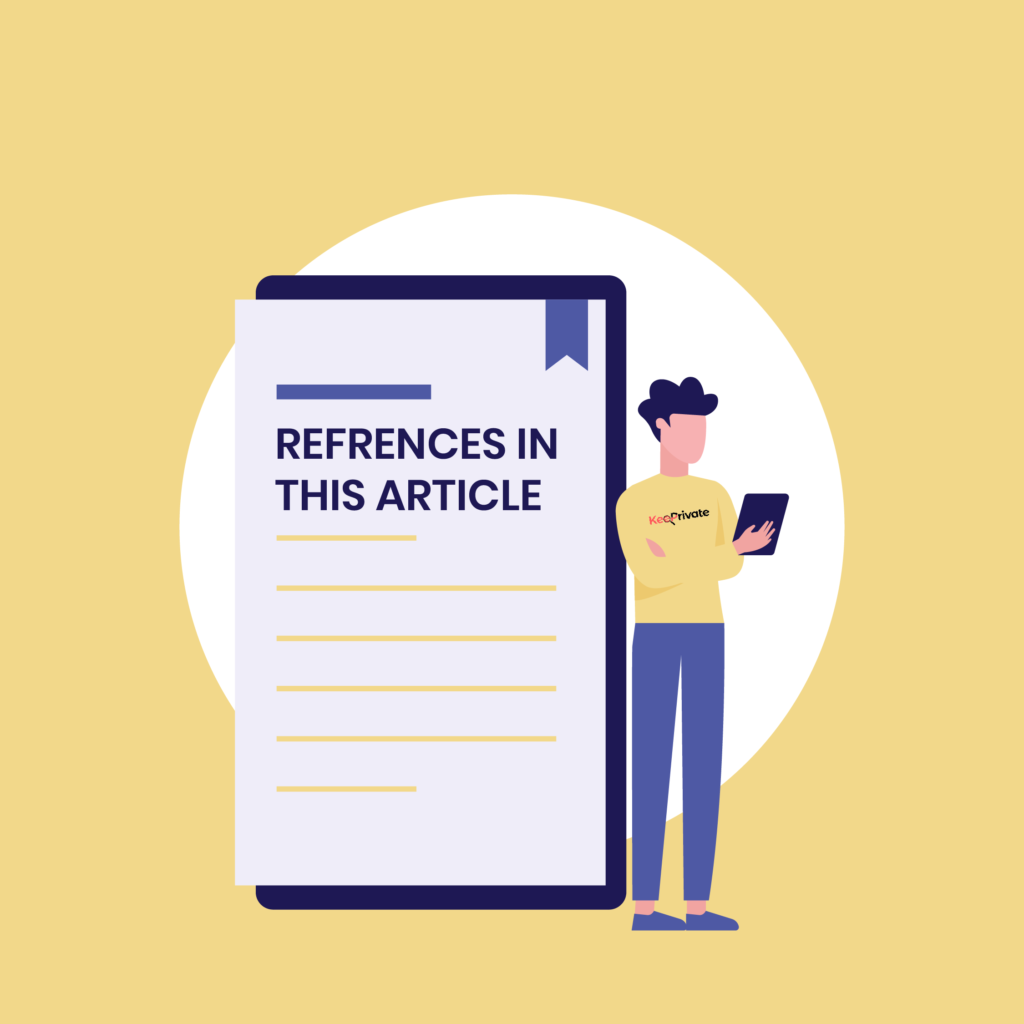
People download various mobile applications to make their lives easy. Since mobile applications became available for free download, billions of people worldwide depend on one or more apps to get things done, whether looking for nearby businesses, telling the weather, providing news updates, or ordering groceries from your local market.
Robocalls and robocall-blocking apps
Regarding how much private data a mobile app can steal from your device, nothing seems more shocking than the example of robocalls and the apps designed to block them. We all get robocalls on our devices occasionally and know what it feels like to be interrupted by your important activities only to respond to something that may never benefit you.
Robocalls can be annoying as they are useless and come at ungodly hours. To prevent being called by a random robot trying to sell you what you don’t need, you end up downloading an app to help block all those pesky robocalls.
While you live in a fool’s paradise thinking that the call-blocking app merely acts as a protective shield in your device, could you wait until you find out what it can do?
In 2018, there were 26.3 robocalls alone in the US
In the US, the problem of robocalls is almost an epidemic as its phone carriers and lawmakers work to eliminate the millions of robocalls people get daily. In the country, almost 27 billion robocalls were made alone in 2018. This was in a pre-Covid America when businesses and companies desperately sought customers and clients.
Due to this annoying problem, people looked to call-blocking apps to help avoid these unsolicited calls. They ended up downloading one of the numerous apps for blocking robocalls. However, little do they know that an immense evil lurks around the corner.
These apps that you think are blocking those unsolicited calls may do what you need them for. But, they are in your device, hiding and snooping around to steal important information and sending it to data-hungry analytics companies that make millions of dollars from data mining.
How robocall-blocking apps compromise private data

An industry expert recently examined the privacy policy of these call-blocking apps from Apple’s app store and studied them against the network traffic information these apps send out. He discovered that most of these robocall-blocking apps were stealing people’s private information and sending it to analytics firms. All of these usually happen without prior consent from the private data owners. This means that before you have ticked the radio button that says “I accept,” you have been robbed of your data.
Understanding privacy policies from mobile applications
People download all types of mobile applications, like robocall-blocking apps, all the time. The problem is that they fail to read through and understand the privacy policies of these apps. If they were to analyze the amount of data these apps steal from them, they would undoubtedly be appalled! The industry expert has since presented his discovery to regulators and the general public.
The need for more sanctions on violations of consumer privacy
As more mobile applications and social media platforms move to find more ways to steal people’s data, regulators are looking to implement more stringent measures to nip this trend in the bud. All they needed to announce their presence was to make one of these tech giants a scapegoat.
The Federal Trade Commission (FTC) and the Federal Communications Commission (FCC) are the top regulators of consumer rights concerning products and services in the US. It said that people complained the most about robocalls. However, the subsequent most regular complaint is the issue of privacy.
As a firm defender of people’s right to privacy in the US, the regulators did catch their “scapegoat.” Sadly for them, it will always reflect on their financial report. But for the general public, it is a step forward in the right direction. Facebook was caught off-guard when it was discovered guilty of compromising its users’ private data.
Happy with its discovery, the FTC fined the social media giants $5 billion for its privacy violations. Since then, people are waking up to all the ways that large tech companies steal their private information.
Many free mobile apps are designed to steal user’s information.
Free mobile applications that solve simple problems may pose severe risks to private data. For instance, a seemingly reliable weather app may be a tool to siphon and sell people’s location data. This is precisely what apps designed to block robocalls are guilty of. These apps have been detected to give people’s phone numbers to data analytics companies. The apps lurk around people’s phones to listen to phone calls and read text messages. Also, the apps are smart enough to detect what other apps are present on users’ phones.
How TrapCall violates its users’ privacies
An in-depth investigation recently revealed that TrapCall is severely violating the privacies of its users. The foremost robocall-blocking app steals people’s numbers from their phones and sends them to three different data analytics firms. To make things worse, the app does this even when it was not part of its privacy policy according to the investigating body. After this revelation went viral, the company altered its privacy policy. It informs its users that their data may be distributed to third parties. Further damage control from TrapCall made their report that all of its users consent to its privacy policy during the installation of the app. It also said that the analytics companies involved never abused
Hiya is also a significant privacy violator.
Another known culprit for violating people’s privacies is Hiya. Hiya is another popular app for blocking robocalls. It was discovered that it also compromises people’s private data and sends them to three data analytics companies. This is done before the users consent to its privacy policy. On further investigation, the researcher discovered that Hiya is not alone in this violation. Many apps that people install on their phones for other purposes, usually send out data from those devices. However, Hiya also tried to do some damage control. The company released a statement to admit that its apps send out basic device information to several third-party service providers; it went on to say that it has never included their phone numbers or private data. When seeking user permission on the Android device, Hiya usually asks for data about people’s locations. Asking for a user’s location is unnecessary to block annoying robotic phone calls. However, the company said it needs users’ location data to help them quickly look for nearby businesses. Furthermore, to control the controversy and maintain public trust, the company announced that they would be working on their apps, readdressing the problems, and re-uploading them on Play and iOS stores as newer versions. This is to ensure that it does not send out its users’ private information without their permission.
The famous mobile app Truecaller is also guilty.
Also, based on the investigation, it was discovered that Truecaller is also not as trustworthy as it looks. The popular app usually compromises people’s device data and sends them to various social media platforms. This usually takes place before the user agrees to its privacy policy. Then again, the company released a statement saying it is changing its privacy policy. This privacy policy from Truecaller is the same across various mobile platforms that they are present in. It says it is updating its privacy policy to help people understand its operations on the different platforms.
The solution is in the fine print.
Hiya, Truecaller, and TrapCall are the most popular robocalling apps online. All three apps have been installed over 110 million times on the Google Play Store.
As all three companies work to revise their privacy policies, industry experts hope that they will help people understand what they do with their data.
The more these app companies become transparent with users’ data, the more people will learn to trust their applications. In addition, it is also essential for companies to make their privacy policies as understandable as possible.
Until this becomes a reality, users will have to struggle to read through boring texts called privacy policies anytime they download mobile apps. They will also have to expect industry experts to be proactive enough to share more insights about what important data various applications steal from their devices.

- Tech Crunch: Robocall-blocking apps caught sending your private data without permission
- CNET: Those robocall blocker apps are hanging up on your privacy
- Tech Times: Robocall Blocking Apps Sent Private Data Without User Permission
- Digital Trends: Robocall-blocking apps might be sending your private data to third parties
- Law Journals Books: SC Lawyer, July 2010, #2. Safety and Security in a Digital Age.
- FCC: In the Matter of Rules and Regulations Implementing the – Truth in Caller ID Act of 2009 – WC Docket. No. 11-39
- UNC: Technology’s Role in Domestic Violence










